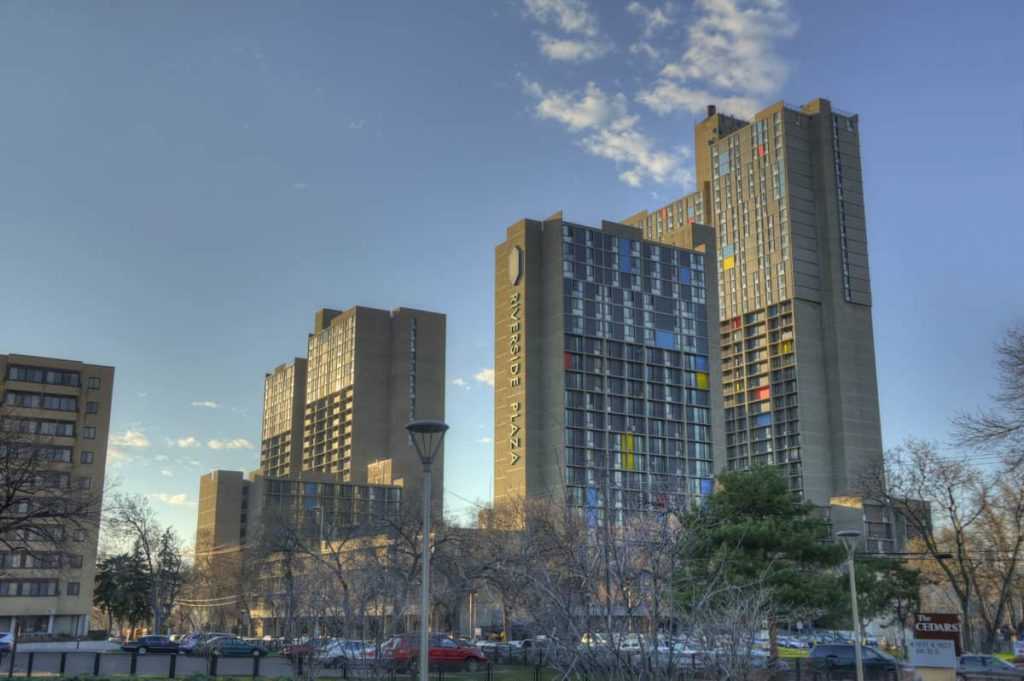Pro-Muslim Brotherhood mosque uses coronavirus to gain call to prayer permission
A controversial mosque in Minneapolis’ Cedar-Riverside neighborhood has become the first permitted to issue the call to prayer over loudspeakers five times a day, after the Council on American Islamic Relations (CAIR) secured an agreement with the city. Minneapolis city noise ordinance does not permit religious institutions to broadcast bells, chimes, carillons or sounds associated with religious worship earlier than 7:00 AM.
A controversial mosque in Minneapolis’ Cedar-Riverside neighborhood has become the first permitted to issue the call to prayer over loudspeakers five times a day, after the Council on American Islamic Relations (CAIR) secured an agreement with the city. Minneapolis city noise ordinance does not permit religious institutions to broadcast bells, chimes, carillons or sounds associated with religious worship earlier than 7:00 AM.
Yet the Dar al-Hijrah mosque’s first call to prayer of the day will begin at sunrise, which is 6:12 AM local time, according to online prayer time calculators.
The agreement comes in time for the start of Ramadan and will last throughout the Muslim holiday. CAIR argued that the mosque-goers needed the call to prayer in order to synchronize congregants in the mostly Somali Muslim neighborhood, a claim some Muslim reformers aren’t buying.
On the Endeavor Against Extremism podcast with Shireen Qudosi, Dalia Al-Aqidi, a secular Muslim currently running for Congress in the MN-5 district, said she’s suspicious of the effort:
“There are plenty of ways for Muslims to be reminded of prayer times. Apps and phone alerts make this very easy. They have apps for Adhan (call to prayer) itself. What’s happening here seems like an effort by Islamists to claim territory for themselves. We should be skeptical of the motives of this mosque in particular.”
Dar al-Hijrah mosque has raised eyebrows in the past for linking to websites for the Muslim Brotherhood, Somali Muslim Brotherhood and several noted pro-jihad Brotherhood clerics on its now defunct webpage. Mosque’s leader Abdisalam Adam is known for efforts to have would-be ISIS fighters released into community custody rather than face prison, and has close ties to CAIR Minnesota director Jaylani Hussein through their shared history as board members of the American Relief Agency for The Horn Of Africa (ARAHA).
Islamist groups like CAIR have long sought to establish public call to prayer, demanding noise ordinance changes and launching lawsuits where necessary. In places where the call has been permitted it has often raised community tension, with non-Muslims complaining noise rules aren’t followed, only to be accused of racism or bigotry.
Islamist groups seeking to separate American Muslims from the rest of society by creating unnecessary tension for political advantage was the topic of a recent panel discussion by the Center for Security Policy, which featured Al-Aqidi and long-time opponent of American Islamists Dr. Zuhdi Jasser of the American Islamic Forum for Democracy (AIFD).
The decision by the city of Minneapolis to accommodate the controversial practice of public call to prayer through loudspeakers comes at a time when many Christian and Jewish religious congregants have expressed a growing concern over local and state government intrusion seeking to limit their religious practices under the rubric of public health emergency, a trend which has alarmed even Attorney General William Barr.
- How to Prosecute the Tesla Bombers - March 31, 2025
- Tesla attacks and domestic terrorism: Kyle Shideler - March 24, 2025
- Modern Minutemen: Vital Considerations to Secure America’s States in the 21st Century - March 17, 2025

